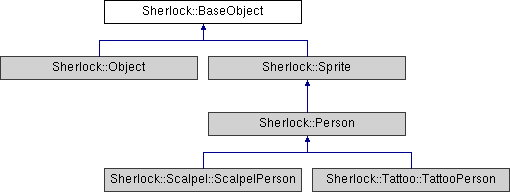|
|
SpriteType | _type |
| |
|
Common::String | _description |
| |
|
byte * | _sequences |
| |
|
ImageFile * | _images |
| |
|
ImageFrame * | _imageFrame |
| |
|
int | _sequenceNumber |
| |
|
int | _startSeq |
| |
|
int | _walkCount |
| |
|
int | _allow |
| |
|
int | _frameNumber |
| |
|
Point32 | _position |
| |
|
Point32 | _delta |
| |
|
Common::Point | _oldPosition |
| |
|
Common::Point | _oldSize |
| |
|
Point32 | _goto |
| |
|
int | _lookFlag |
| |
|
int | _requiredFlag [2] |
| |
|
Common::Point | _noShapeSize |
| |
|
int | _status |
| |
|
int8 | _misc |
| |
|
int | _maxFrames |
| |
|
int | _flags |
| |
|
AType | _aType |
| |
|
int | _lookFrames |
| |
|
int | _seqCounter |
| |
|
PositionFacing | _lookPosition |
| |
|
int | _lookcAnim |
| |
|
int | _seqStack |
| |
|
int | _seqTo |
| |
|
uint | _descOffset |
| |
|
int | _seqCounter2 |
| |
|
uint | _seqSize |
| |
|
UseType | _use [6] |
| |
|
int | _quickDraw |
| |
|
int | _scaleVal |
| |
|
int | _gotoSeq |
| |
|
int | _talkSeq |
| |
|
int | _restoreSlot |
| |
|
|
static bool | _countCAnimFrames |
| |
◆ checkEndOfSequence()
| bool Sherlock::BaseObject::checkEndOfSequence |
( |
| ) |
|
|
protected |
This will check to see if the object has reached the end of a sequence. If it has, it switch to whichever next sequence should be started.
- Returns
- true if the end of a sequence was reached
◆ setObjSequence()
| void Sherlock::BaseObject::setObjSequence |
( |
int |
seq, |
|
|
bool |
wait |
|
) |
| |
|
protected |
Scans through the sequences array and finds the designated sequence. It then sets the frame number of the start of that sequence
◆ hasAborts()
| bool Sherlock::BaseObject::hasAborts |
( |
| ) |
const |
Returns true if the object has an Allow Talk Code in the sequence that it's currently running, specified by the _talkSeq field of the object. If it's 0, then it's a regular sequence. If it's not 0 but below 128, then it's a Talk Sequence. If it's above 128, then it's one of the Listen sequences.
◆ checkObject()
| void Sherlock::BaseObject::checkObject |
( |
| ) |
|
Check the state of the object
◆ checkNameForCodes()
| int Sherlock::BaseObject::checkNameForCodes |
( |
const Common::String & |
name, |
|
|
FixedTextActionId |
fixedTextActionId = kFixedTextAction_Invalid |
|
) |
| |
Checks for codes
- Parameters
-
| name | The name to check for codes |
| messages | Provides a lookup list of messages that can be printed |
- Returns
- 0 if no codes are found, 1 if codes were found
◆ setObjTalkSequence()
| virtual void Sherlock::BaseObject::setObjTalkSequence |
( |
int |
seq | ) |
|
|
inlinevirtual |
Adjusts the frame and sequence variables of a sprite that corresponds to the current speaker so that it points to the beginning of the sequence number's talk sequence in the object's sequence buffer
- Parameters
-
| seq | Which sequence to use (if there's more than 1) |
Reimplemented in Sherlock::Object, Sherlock::Sprite, and Sherlock::Tattoo::TattooPerson.
The documentation for this class was generated from the following file:
